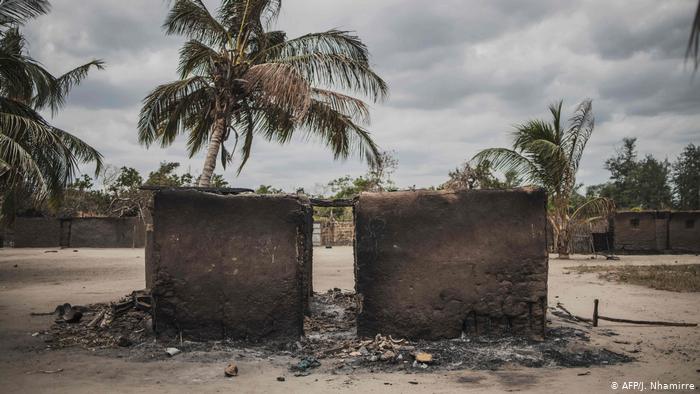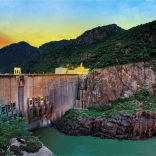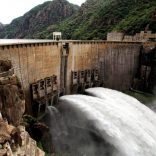Breaking: Eni takes final investment decision on second floating LNG unit offshore Mozambique
Cabo Delgado: Less revenue and more security in gas sector after attacks

File photo: DW
A CIP researcher says initial projections of gas revenues may decline following the death of eight Fenix Construction workers in Cabo Delgado, and calls for more transparency in the sector.
Armed attacks continue to cost lives in Cabo Delgado, in northern Mozambique. The most recent victims are eight workers from Fenix Construction, a subcontracted construction company operating on the region’s gas megaproject, who were attacked on 27 June. Three workers who managed to escape the attack are still missing.
What could the death of these workers represent for the gas sector? Could the withdrawal of investors be one of the consequences? That’s what DW Africa asked Inocência Mapisse, a researcher at the Centre for Public Integrity of Mozambique (CIP). She has asked the government for more transparency and rigor in controlling companies operating in the gas sector, to avoid further losses to the country.
DW Africa: What does the loss of these workers’ lives mean for the gas sector? Could we see the departure of investors?
Inocência Mapisse.(IM): For the country as a whole, the loss of human life itself is something to regret. Now, looking at the gas sector, attacks on workers in companies related to gas projects will undoubtedly have a direct impact on the operating cost of these projects. What will happen here is that companies will strengthen their security systems. Above and beyond the security that was demanded or recommended by companies to the Government, which is military security, companies themselves will reinforce their individual security component. And this cost will certainly be passed on to the gas companies, because this is a company that deals with the gas company, [although] not directly at the exploration level. But at the end of the day, these are costs that will impact on the reduction of taxed material. Which means that the revenue projections that were initially made may decrease.

In a context of war or in a context of attacks, there is very little room for inspection and monitoring. This makes room for companies to inflate those same costs. It is not known which companies are being hired to provide this security, or what terms of reference are being used. Therefore, there is a whole space for the same companies in the oil sector to inflate costs. And if costs are inflated, this will have a negative impact on the revenues to be collected by the State.
DW Africa: We are talking about a sector that, in addition to the armed attacks, has also been hit by the Covid-19 pandemic and the fall in oil prices. What needs to change in this sector?
IM: These events are all interconnected – at least the last two, which is the fall in oil prices and the impact of the Covid-19 pandemic. This sector is undoubtedly one of the worst affected. What can be done at the moment is to strive for transparency, at least on the side of the Government, and rigour in the control of these same companies to prevent losses from being substantial. Because, in effect, this whole situation will impose a greater challenge on the country in capturing revenues and then transferring these revenues to finance other sectors of the economy and, thus, to leverage the development of our country. But it is necessary that, at this moment, the Government strives for transparency and rigour in technical analysis to ensure that the values presented by these same companies are reliable.
DW Africa: Last week, on a visit to Mozambique, the French oil company Total said it was satisfied with the secure execution of the gas exploration project in Cabo Delgado, and that the government was working very well to create, as far as possible, the best conditions to carry out this work. Does the CIP agree?
IM: Our expectation is that the Government is working very well to manage this situation. But what we want, at the moment, is evidence that this work is being done well. Best of all, a report showing what the Government is actually doing to ensure that operations continue and that they continue in a context in which the country can also benefit.
DW Africa: Since you spoke about transparency, today (06.07) the newspaper @Verdade made public that the president of the French oil company Total for the area of exploration and production, Arnaud Breuillac, violated state of emergency [regulations] when entering Mozambique because he did not comply, as required by law, with the mandatory quarantine regime for those arriving in the country. What message does this episode convey? Does the Mozambican Government use double standards?
IM: This is a very delicate situation that, in fact, sends, in my view, the message that the Mozambican Government at the moment does not have enough power to deal with the large companies in the gas and mining sectors in Mozambique. This also calls attention to several other matters. If, in a matter like this, which is very easy to monitor, you can’t even deal with the mandatory quarantine situation, let’s imagine more critical cases like the cost control issue, or the price transfer control issue arising from the fact that companies are dealing [directly] with themselves. In these cases, what will the governance of the sector be like?













Leave a Reply
Be the First to Comment!
You must be logged in to post a comment.
You must be logged in to post a comment.